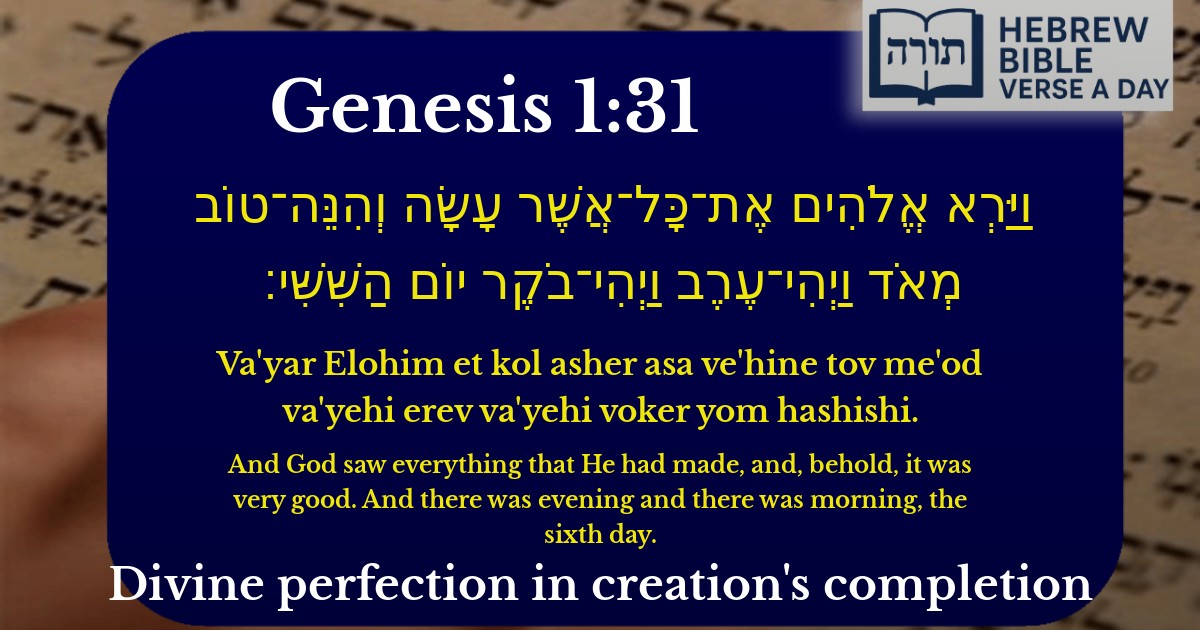Join Our Newsletter To Be Informed When New Videos Are Posted
Join the thousands of fellow Studends who rely on our videos to learn how to read the bible in Hebrew for free!
Hebrew Text
וַיַּרְא אֱלֹהִים אֶת־כָּל־אֲשֶׁר עָשָׂה וְהִנֵּה־טוֹב מְאֹד וַיְהִי־עֶרֶב וַיְהִי־בֹקֶר יוֹם הַשִּׁשִּׁי׃
English Translation
And God saw everything that He had made, and, behold, it was very good. And there was evening and there was morning, the sixth day.
Transliteration
Va'yar Elohim et kol asher asa ve'hine tov me'od va'yehi erev va'yehi voker yom hashishi.
Hebrew Leining Text
וַיַּ֤רְא אֱלֹהִים֙ אֶת־כׇּל־אֲשֶׁ֣ר עָשָׂ֔ה וְהִנֵּה־ט֖וֹב מְאֹ֑ד וַֽיְהִי־עֶ֥רֶב וַֽיְהִי־בֹ֖קֶר י֥וֹם הַשִּׁשִּֽׁי׃ {פ}


The Meaning of "Very Good" (טוֹב מְאֹד)
Rashi (Bereshit 1:31) explains that the phrase "very good" refers to the inclusion of death in creation. Though death may seem negative, it serves a divine purpose in the grand design of the world. The Midrash (Bereshit Rabbah 9:5) expands on this, stating that "very good" alludes to the yetzer hara (evil inclination), for without it, mankind would not build homes, marry, or engage in commerce—essential aspects of human civilization.
The Completion of Creation on the Sixth Day
The Ramban (Nachmanides on Bereshit 1:31) notes that the phrase "the sixth day" (יוֹם הַשִּׁשִּׁי) includes the definite article "הַ" (the), unlike the previous days. This suggests a special significance—hinting at the sixth day of Sivan, when the Torah would later be given at Har Sinai. The Sforno adds that the completeness of creation was only fully realized when humanity accepted the Torah, fulfilling its divine purpose.
The Dual Nature of Evening and Morning
The Talmud (Chagigah 12a) teaches that the sequence of "evening and morning" symbolizes the cyclical nature of divine judgment (evening) and mercy (morning). The Kli Yakar (R' Shlomo Ephraim Luntschitz) explains that this duality reflects the balance of strict justice and compassion in Hashem's governance of the world, culminating in the harmony of creation declared "very good."
The Significance of the Sixth Day